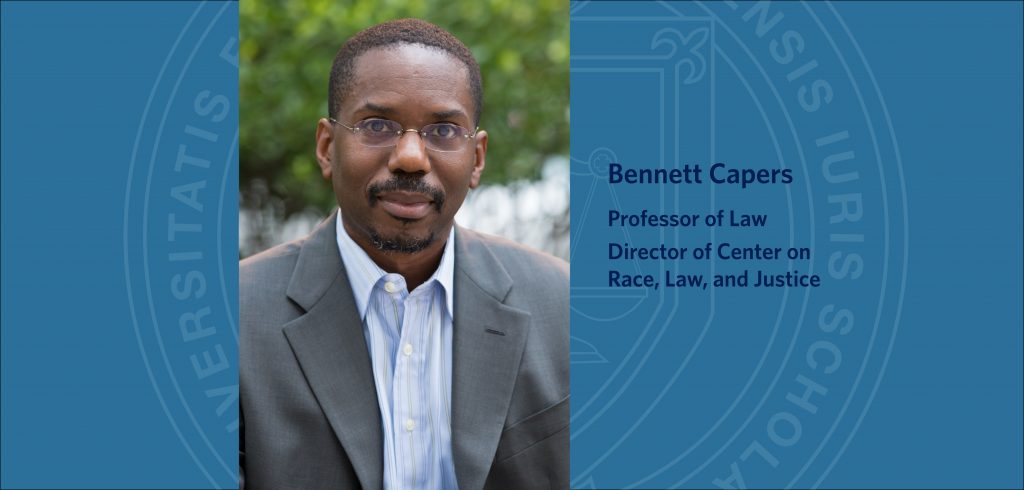In a Q&A with Iran Daily Professor and Center on Race, Law and Justice Director Bennett Capers discusses his New York Law Review article that examines Afrofuturism and how he envisions a more just society.
[Afrofuturism] opens the door to personal and collective imagination in regards to the lived experiences of America’s black community. As a tool of fantasy, it also invites us to imagine many possible futures with a special focus on matters of significance to that community – perhaps most importantly, how a more egalitarian future might look like for them, in which the burden of injustices, institutional or otherwise, which they currently face would be taken off their shoulders.
Imagining such a future for people of color in the U.S. is not wishful thinking. In fact, numbers do add up. As Bennet Capers, law professor at Fordham University, argues in his exciting paper, ‘Afrofuturism, Critical Race Theory, and Policing in the Year 2044’, which first appeared in New York University Law Review in 2019, the U.S. “is projected to become a ‘majority-minority’ country” in 2044, “with people of color making up more than half of the population.”
Pointing to that projection, Capers asks us to think the contours of the social and the political in 2044, “when people of color make up the majority in terms of numbers, or in the ensuing years, when they also wield the majority of political and economic power?” And more specifically, he speculates about what the policing might look like then. The article, serialized in Iran Daily over the past few days, is an attempt to answer such questions.
…
“It certainly won’t happen automatically. And because whiteness itself is malleable, it is entirely possible that some people we think of as racial minorities today will in the future “become” white, much in the way that Italian, Irish, and Jewish immigrants in the United States eventually “became” white. That said, my hope is that the shift in demographics will result in a shift in political power when people of color become the majority of the electorate. Once people of color wield political power, as they already do in some U.S. cities, I’m hopeful that economic power and social capital power will follow. One thing I try to communicate when I talk about 2044 and the ensuing years is “the possible.” Race scholarship, since it is so often focused on the present, tends towards the pessimistic. There is even the term “Afro-pessimism.” I’m trying to shift the conversation by reminding people that a demographic shift can herald positive change. And if that’s possible, shouldn’t we start preparing for it now?”

